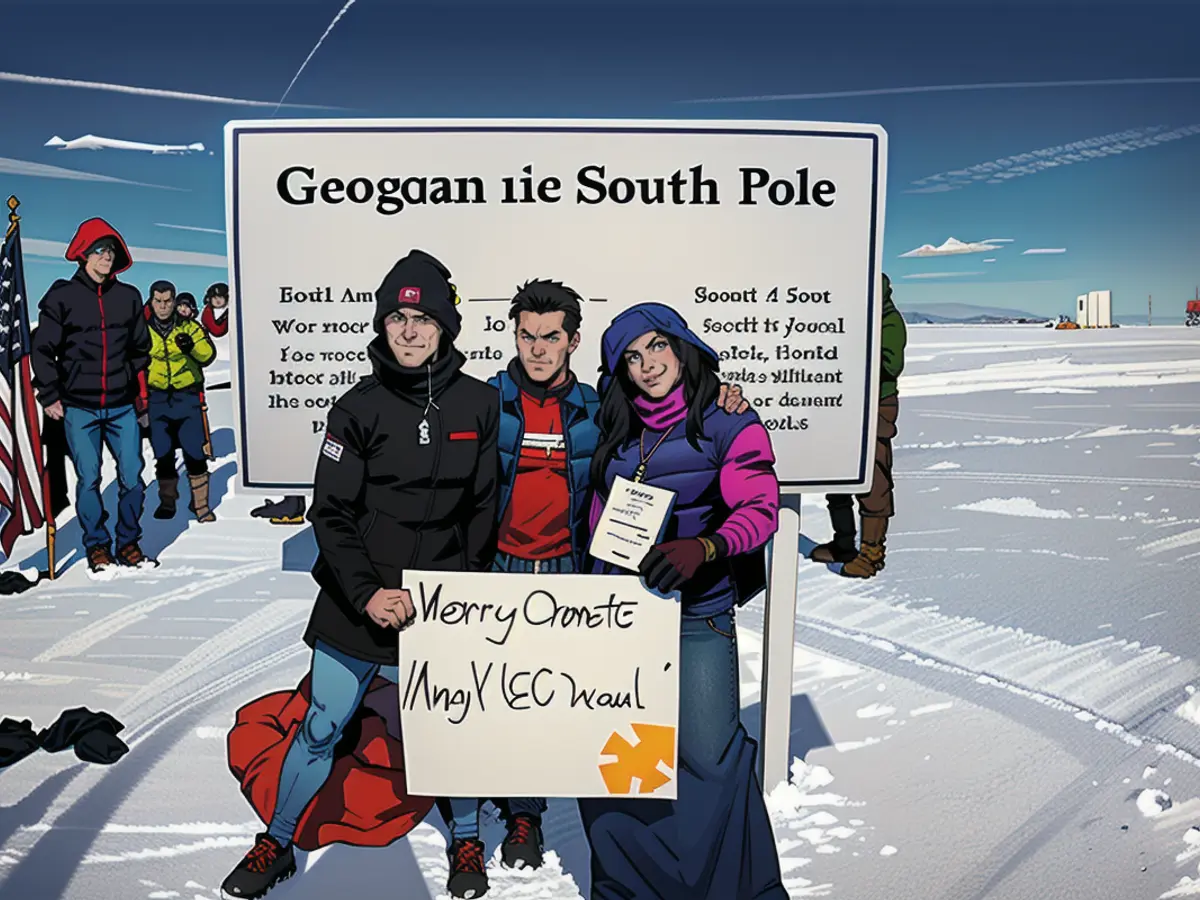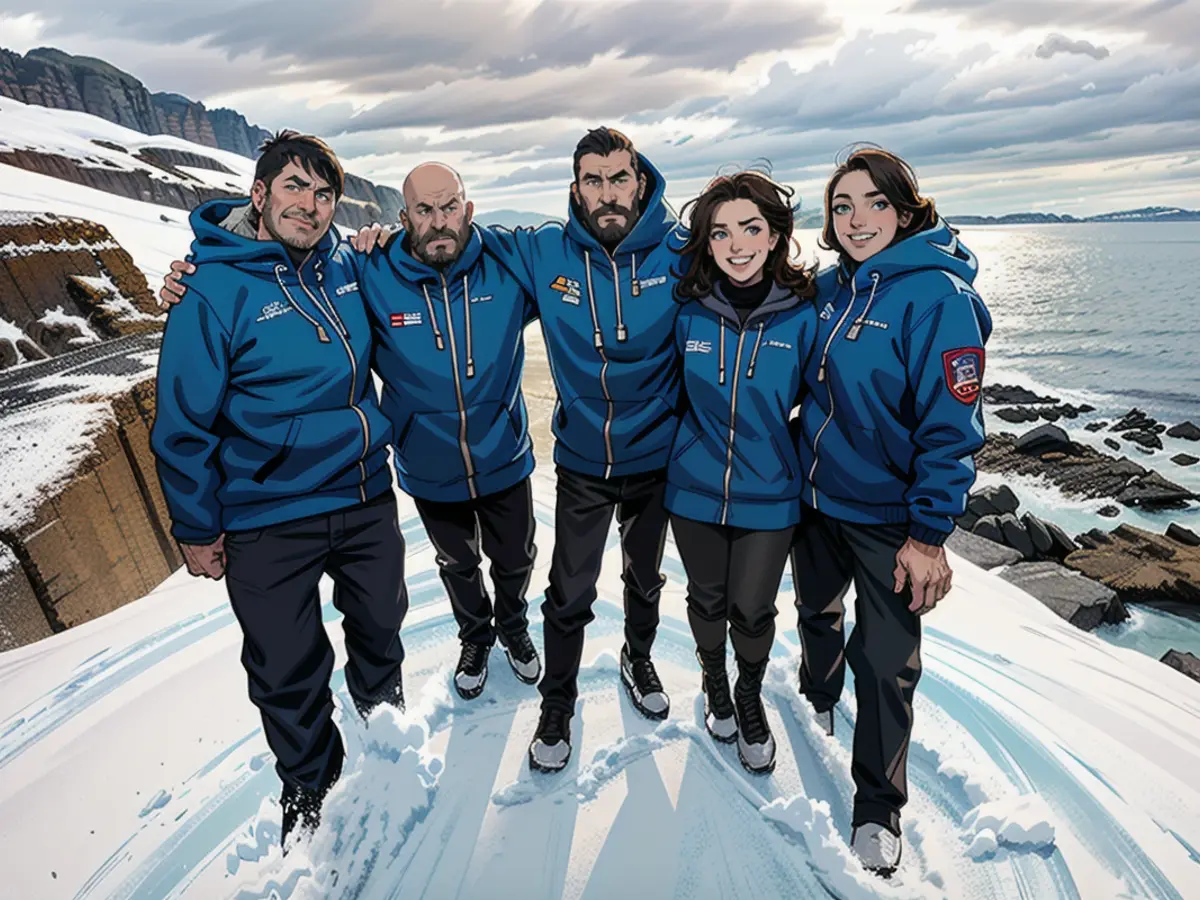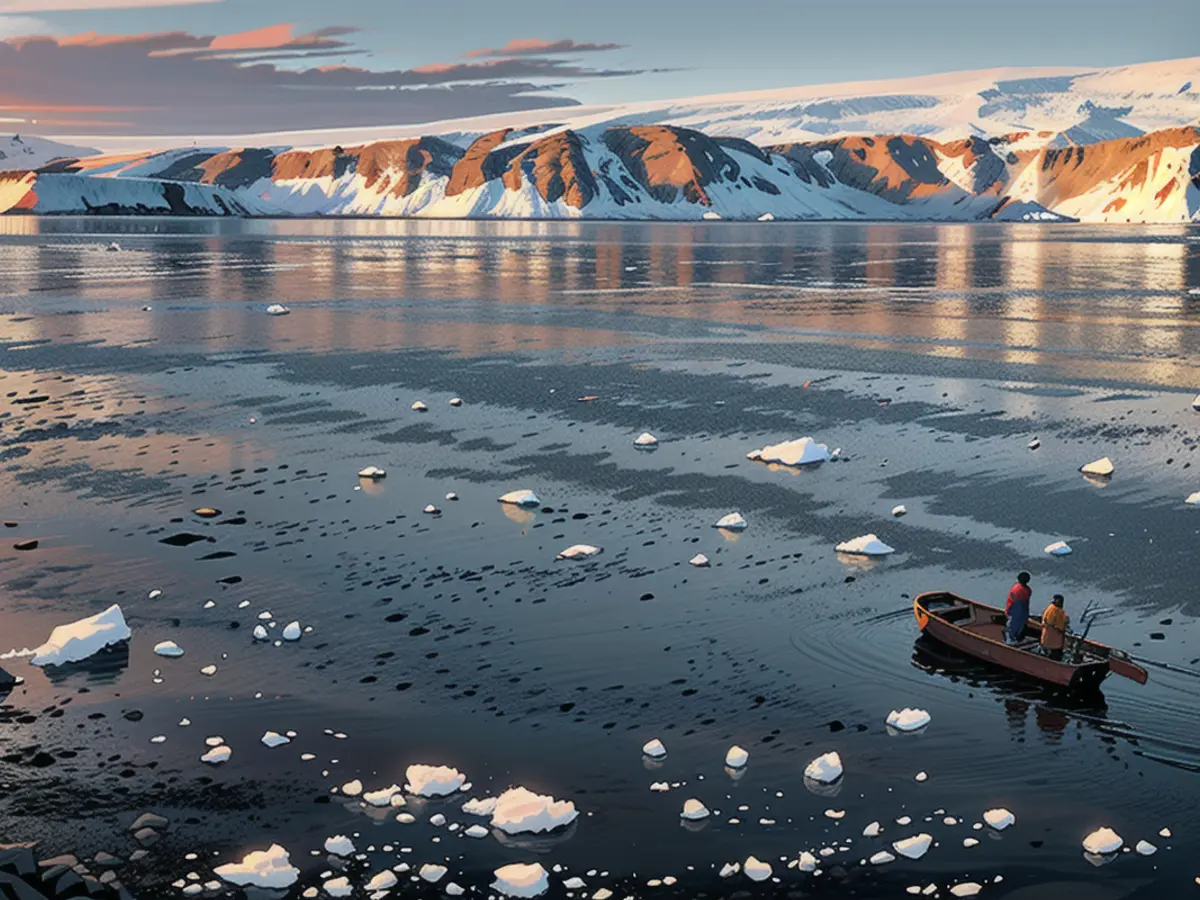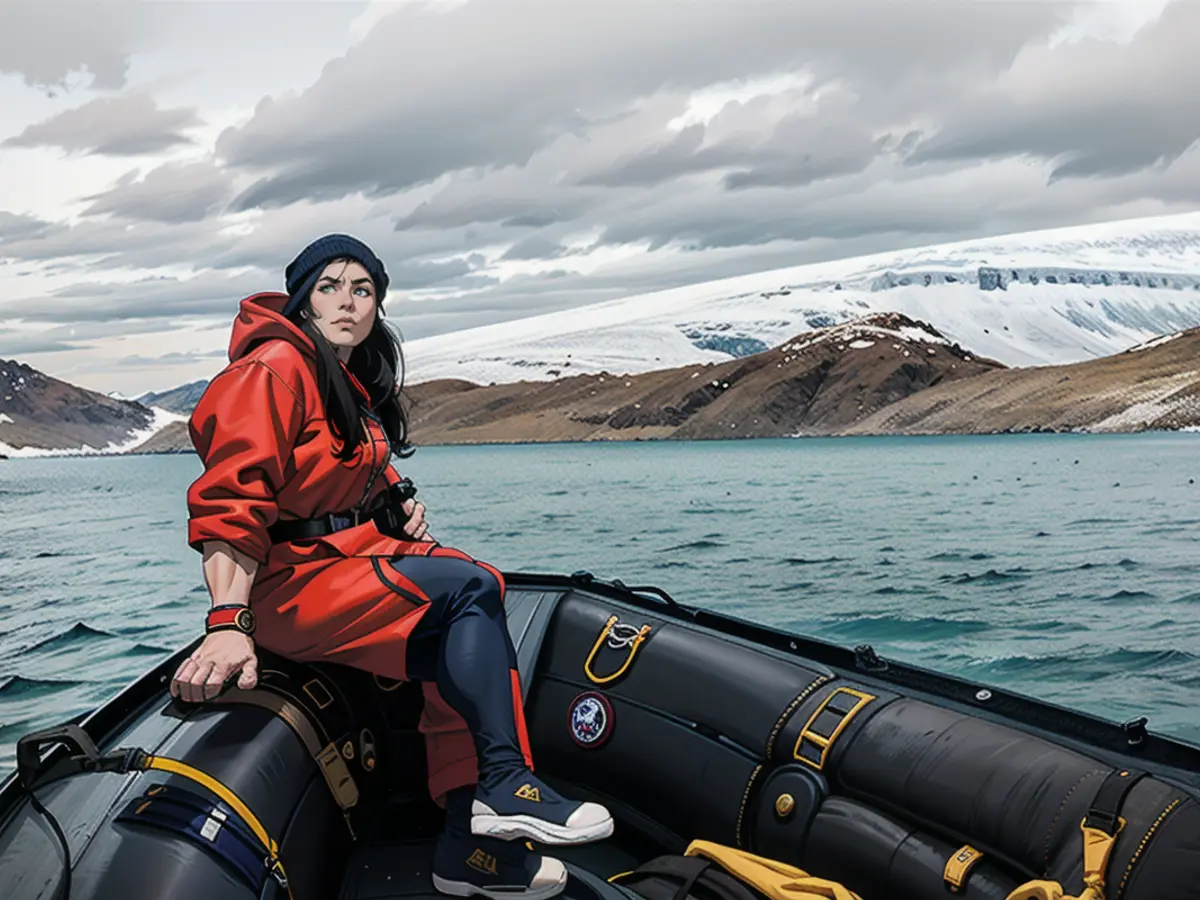Life in Antarctica: A Comprehensive Overview
A glimpse into the world of Antarctica can be summed up by a select few phrases used by those lucky enough to call it home. This icy continent is often described as cold, mysterious, challenging, and full of adventure.
The Antarctic Treaty, signed in 1959 by twelve countries including Chile, Japan, Australia, and the United States, ensured that Antarctica would be used solely for peaceful purposes. As a result, there are no military bases, but military planes and ships provide transportation for people and supplies. This implies that only a select few thousand individuals have had the privilege of living in the world's coldest continent.
Despite living with strangers, taking quick showers, and having no privacy, countless brave explorers believe the hassles are worth enduring. Keri Nelson, a Minnesota native, first visited Antarctica in 2007 to work as a janitor at McMurdo Base, one of the three US outposts. With 16 seasons under her belt, she has had the opportunity to work at all three stations: McMurdo, Amundsen-Scott Station at the geographic south pole, and Palmer Station, located north of the Antarctic peninsula.
Nelson uses an intriguing analogy to describe her experiences at each base. "If I was going to describe it in musical form," she says, "I would say McMurdo was like gritty, dirty bluegrass and South Pole was like symphony music and Palmer is like really corny, fun pop music."
During the summer months, from October to March, McMurdo Base can accommodate up to 1,000 people - ranging from scientists to carpenters to dishwashers. Many support staffers hold more than one position.
Evan Townsend, creator of the Antarctica Flag, worked in the kitchen, tended bar, and managed the craft room during his stay. According to Nelson, "It is an entire town. You could go whole seasons and never meet a lot of people there, and it’s just very busy at those stations. It’s just bustle, bustle, bustle all the time." The hustle and bustle result from McMurdo's size as the biggest base, but also from the rotation of staff, who move between other stations or embark on expeditions and research trips throughout the season.
Admittedly, there are some modern amenities, such as a room for watching DVDs, a craft room, and a gym. However, McMurdo's clubhouse atmosphere offers ample opportunities for socializing. Nelson has organized fashion shows with a runway and even played music in the "ice bands" that emerge during a season. Crossing the 30-kilometer distance between McMurdo and New Zealand's Scott Base is also common, with staffers attending each other's jam sessions, book club meetings, and movie marathons. Some staffers even volunteer to teach classes in yoga, languages, or other interests.
For others, such as Chris Long, the summer months are not filled with bustling social events. Instead, his six-month tenure at Port Lockroy, the world's southernmost post office (administered by the UK), was more serene and less frenzied. "The island is the size of a football field, so it's tiny. And you live in a hut together where there are basically two rooms," he explains. "We don't have any running water and therefore no showers, no proper flushing toilets, and you're always on top of each other."
Another common misconception, Bullesbach asserts, is that life on the remote continent is uneventful. On Port Lockroy, she participated in daily tasks such as life administration, which included taking turns cooking meals, as well as more significant tasks like surveying the water for plastic pollution and monitoring the island's penguin colony.
However, for Laura Bullesbach, a typical day in Antarctica was far from mundane. Upon concluding her Antarctic season in March 2024, she emphasized, "We don't have any running water and therefore no showers, no proper flushing toilets, and you're always on top of each other. When I said goodbye at the airport to one of my colleagues, we hadn't been without each other since the end of October for longer than maybe what it takes to take a shower on a ship. You're close friends and you're roommates and you're colleagues and it's everything at once."

The unique, adventurous lifestyle of living in Antarctica is far from ordinary, but the reward of witnessing the world's most remote and untouched environment makes it all worthwhile.
Born with the insatiable desire to explore the eventful saga of working in Antarctica, Nelson readily signed up for a job fair in the picturesque city of Denver. Despite initially striking out in the hunt for a job as a dishwasher, she persisted by highlighting her nursing background when applying for the post of a janitor.
One of the interview questions, she recalls, revolved around the most repulsive mess she'd ever cleaned. And this strategy worked! Since her first stint as a janitor, Nelson has donned several hats at various stations, eventually ascending to the station manager.
Despite the deprivation of finances, Nelson couldn't be bothered. What intrigued her was the experience of living in Antarctica, a perk that came with all meals, accommodation, and transportation to and from the continent being covered.
Coveting an Antarctica gig isn't all about flaunting a stellar CV. As Long explains, the day-to-day life necessitates residing in cramped quarters for extended periods.
He shares, "It doesn't matter how accomplished you are as a scientist/engineer. If you can't jive in a cramped abode with three other people or maybe in a station averaging 40 individuals for the season, then you're of no use."
"Sartre once said, 'hell is other people.'" Bullesbach joined the final round of interviews for Port Lockroy roles and, alongside other candidates, trekked to a remote location for what she terms a "selection camp." Here, contestants were divided into groups, tasked with constructing a tent blindfolded. The objective was two-fold: to gauge their dexterity, ability to tackle problems, and compatibility with their teammates.
Citizenship of one's country also plays a pivotal role in embarking on the tantalizing journey. Bullesbach, a German, thus sat pretty as she qualified for the Port Lockroy stint by possessing rights to work in the UK.
But what if you're not? Not a mountain to climb! A considerable number of alternatives exist, most notably tourism.

And then, the eternal query: what to pack? A spartan lifestyle was demanded of Bullesbach and her kin, with a combined baggage allowance of two bags.
"Bid farewell to hoarding!" she insists. "You'd need three sweaters, two pairs of pants, an abundance of socks, and that's just about it. Then, we sent a parcel down stocked with other personal items. For anything hygienic, we'd mail it beforehand. Also, every individual was encouraged to bring one or two games for nightly recreation."
Residents of larger camps avail themselves of the benefits of the past. At McMurdo, for example, Nelson recounts a vast library of books and DVDs, plus gear, clothing, and assorted accessories that previous denizens had left behind. And, most importantly, a supply of medical amenities - everything from rudimentary bandages to sophisticated equipment like defibrillators.
Electronics have proven indispensable while packing. Bullesbach could effortlessly pack her Kindle to the brim with digital literature, and thankfully, solar energy sufficed to fuel it. A reliable internet connection at Port Lockroy, courtesy of Starlink, was at their disposal. However, the team collectively agreed to resist the urge to use their handheld devices during mealtimes.
It's no surprise that the ultramodern sense of minimalism had found its place in Long's lifestyle as well. Post some glitches in his initial stints, he's now cracked the code of how to pack for the end of the world.
Now that I have the equipment I prefer, I don't need to carry as much with me. I possess the ideal pair of snow pants, a cozy jacket, and a comfortable hat. This way, being knowledgeable about your gear helps you focus less on yourself and more on the task at hand.
Despite the challenges of residing and working in the most inhospitable place on Earth, according to Long, there are risks involved. Larger camps like McMurdo, for instance, possess qualified medical professionals who could provide a range of treatments. However, in case someone needs a major operation or urgent treatment, they'll have to wait for a ship or boat to take them to the nearest major city - a journey that could last between two and ten days.
Long recounts several instances of major injuries which happened in Antarctica. In one situation, a cruise passenger tumbled on the ice and fractured their arm. The on-board physician was able to set the bone and the injured person carried on with the remaining two weeks of the trip. On the more serious side, a Russian scientist - also a trained physician - realized that his appendix had perforated and conducted emergency surgery on himself.
“He knew what he was doing and so he knew he'd perish if he didn't. So he did it and lived,” says Long. “That's what you do when you've no other choice.”

Fond of frozen landscapes
Antarctica has the power to captivate those who visit. Nelson and Long express their inability to imagine their lives without spending time there, while Bullesbach already applied for a second expedition a week after returning from her first. Meanwhile, Nelson has started a podcast, Antarctica Did That For Me, to share her encounters.
In this busy world where everyone is always glued to their smartphones, Antarctica grants an exceptional opportunity to live a distinct lifestyle.
However, climate change is already impacting the seventh continent in ways that extend beyond melting ice. As global warming progresses, more countries that weren't part of the initial Antarctic Treaty, such as China, are attempting to claim portions of it.
“[Antarctica] is established under treaty at present for science and peace and projects that benefit humanity. It's one of the reasons I adore working in the program," says Nelson.
“Things just keep being taken from Antarctica. Information, ice, resources like seals, whales, and fish,” Klaus Dodds, professor of Geopolitics at the University of London, spoke to CNN in 2021. “Antarctica's fragility, I think, symbolizes the fragility of the wider world. I believe the Antarctic represents, in essence, not just the idealism that the treaty represents, but also the contrasting nature of humanity more generally.”
Nelson acknowledges that Antarctica offers her a sense of peace she can't find anywhere else.
“When I'm there, I can feel exactly as small as I am in this universe. I can't feel any smaller than I am in this universe. I can't feel any larger than I am in this universe.”

Read also:
- Fear of escalation in the Middle East: US Secretary of State Blinken travels to the region again
- Government circles: US Secretary of State Blinken to travel to Middle East again
- Bridging days 2024: How you can double your vacation this year
- Germany has wanderlust: how tour operators and airlines are looking ahead to the next travel year
- Despite the challenging living conditions, many individuals, like Keri Nelson and Evan Townsend, are eager to travel to Antarctica for work opportunities, as the unique and adventurous lifestyle makes the hassles worth enduring.
- During the summer months, when up to 1,000 people are at McMurdo Base, staff members often participate in social events such as jam sessions, movie marathons, and classes, making it necessary to travel between different bases and outposts.
Source: edition.cnn.com








